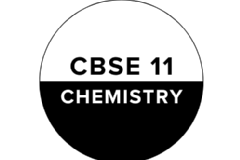For students beginning their accountancy studies in 11th grade, it's a foundational year. Here's a breakdown of key aspects:
Core Concepts:
* Introduction to Accounting:
* Understanding the basic principles and objectives of accounting.
* The role of accounting in business.
* Key terminology: assets, liabilities, equity, revenue, expenses.
* Theory Base of Accounting:
* Accounting concepts and conventions.
* Generally Accepted Accounting Principles (GAAP).
* Recording of Transactions:
* Journal entries and the rules of debit and credit.
* Ledger posting.
* Subsidiary books.
* Bank Reconciliation Statement:
* Reconciling bank statements with company records.
* Trial Balance and Rectification of Errors:
* Preparing a trial balance.
* Identifying and correcting accounting errors.
* Depreciation, Provisions, and Reserves:
* Understanding depreciation methods.
* Creating provisions and reserves.
* Financial Statements:
* Preparing basic financial statements (e.g., income statement, balance sheet).
Key Considerations:
* CBSE Curriculum:
* If you're following the Central Board of Secondary Education (CBSE) curriculum, it's essential to refer to the official CBSE syllabus. You can find up to date curriculum information on the CBSE academic website.
* The CBSE curriculum will outline the specific topics and their weightage in exams.
* Importance of Fundamentals:
* Accountancy in 11th grade lays the groundwork for more advanced accounting concepts in 12th grade and beyond. Therefore, it's crucial to have a strong understanding of the fundamentals.
* Practical Application:
* Accountancy is not just about theory; it also involves practical application. Practice solving problems and working through examples to reinforce your understanding.
* Resources:
* NCERT textbooks are a primary resource.
* Online resources and educational platforms can provide supplementary materials and practice exercises.






